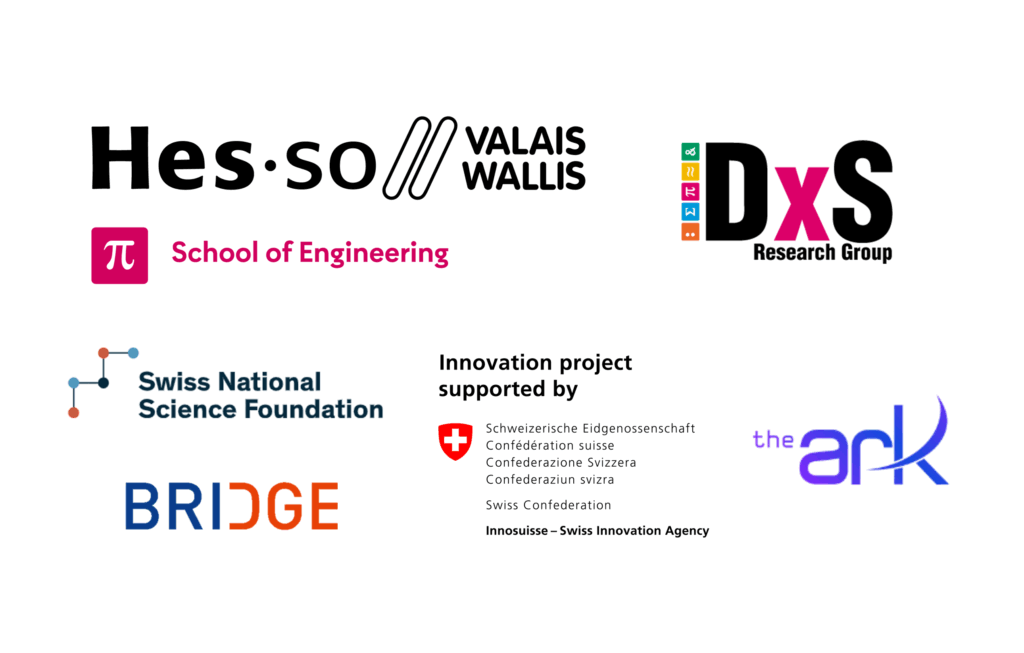
The future of brain injury healthcare!
Mild Traumatic Brain Injury (mTBI) point-of-care diagnostic platform
Mild traumatic brain injury (mTBI) impacts millions of lives, causing impairment, disability, psychosocial complications, and economic loss.
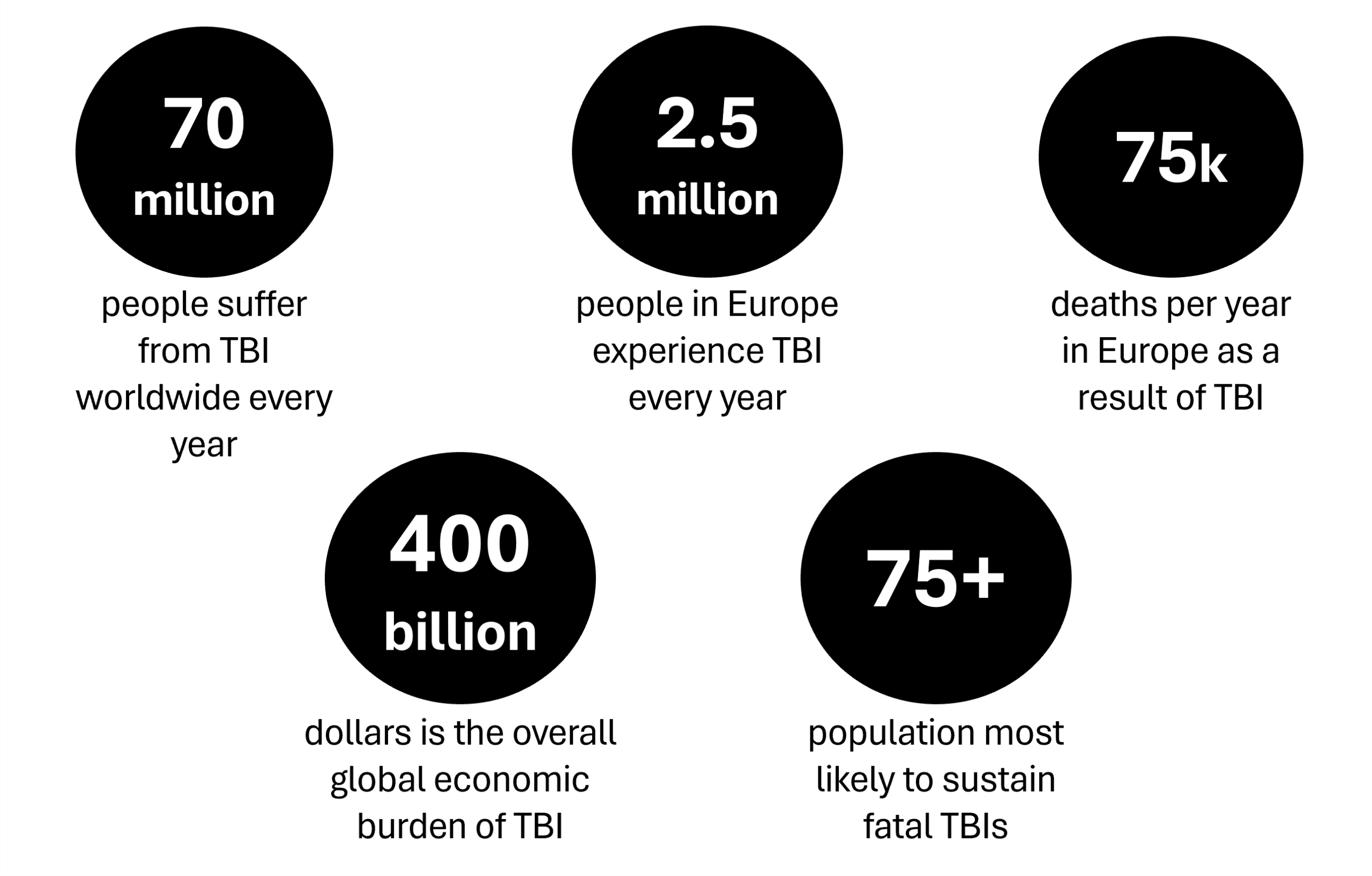

Yet, mTBI is often not detected because sensitive diagnostic tools are lacking.
OUR VISION
At NeuroMDx, we envision a future where mild brain injuries are recognized timely and wherever they occured.

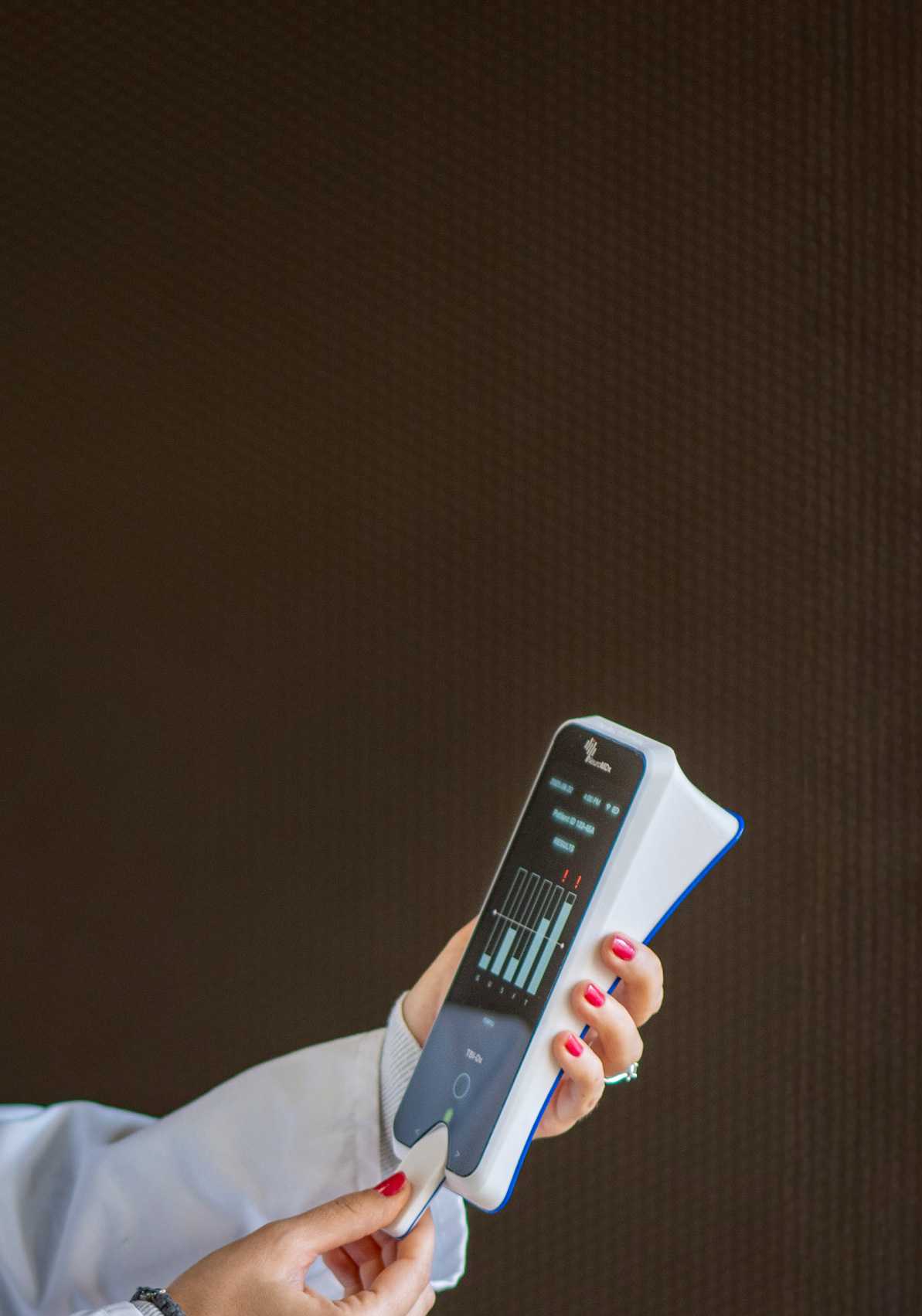
By merging advanced bioanalytics with innovative engineering, we are working to bring laboratory precision near patients, empowering clinicians with rapid, actionable insights that save time, reduce costs, and ultimately improve patient care and outcomes.
OUR UNIQUE APPROACH
From a single drop of blood to a data-driven decision making — in minutes.
Our technology bridges advanced bioanalytics and smart engineering to deliver lab-grade precision directly at the point of care.
🕒 Fast & Actionable
Results in less than 15 minutes, enabling rapid reassurance and early clinical decision-making.
💧 Minimal & Simple
Only a finger-prick blood drop sample, with intuitive operation for seamless use anywhere.
🔬 Multi-Biomarker & Quantitative
Simultaneous, low-level biomarker detection for superior clinical specificity and sensitivity.
📈 Dynamic by Design
Multi-timepoint measurements provide insight into biomarker kinetics. Support for recovery, back to work, and return to play management.
⚙️ Efficient & Scalable
Low-cost architecture and up-scalable production, ready for real-world deployment.
📱 Compact & Connected
Portable, interoperable and cyber-secure to ensuring immediate and reliable data availability.
OUR TECHNOLOGY
Brain Biomarkers
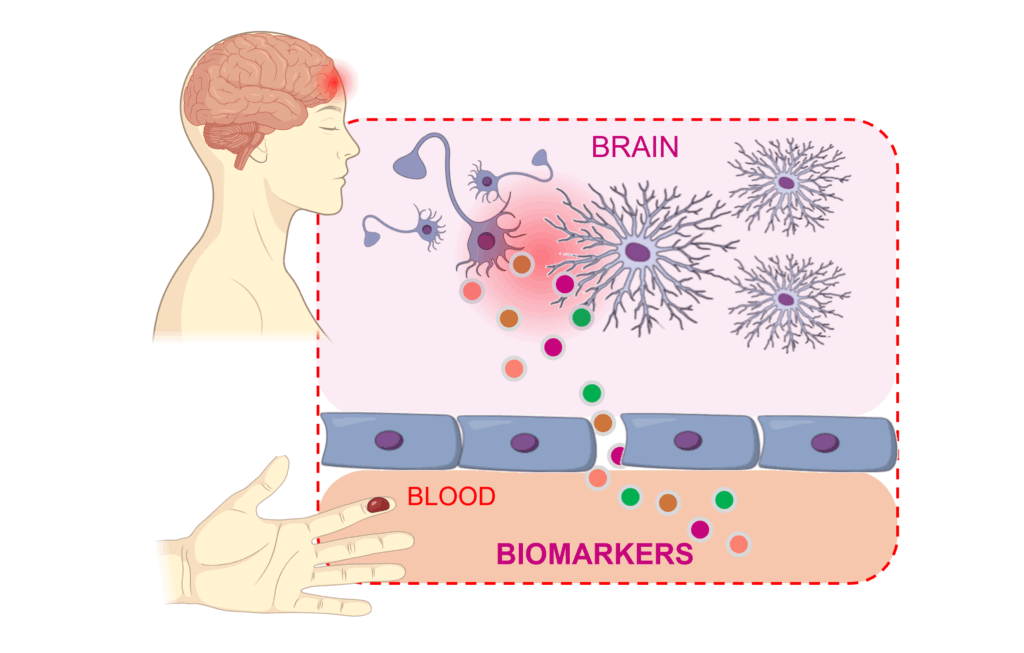
Following the injury, biomarkers pass the blood-brain barrier and enter the blood circulation.
Only 1-2 drops of blood (finger-prick sample) are needed for detection. Thanks to a panel of biomarkers, it will be possible to increase the clinical sensitivity and specificity.
NeuroMDx solution can detect multiple biomarkers simultaneously.
Image made with BioRender
A laboratory in your hand
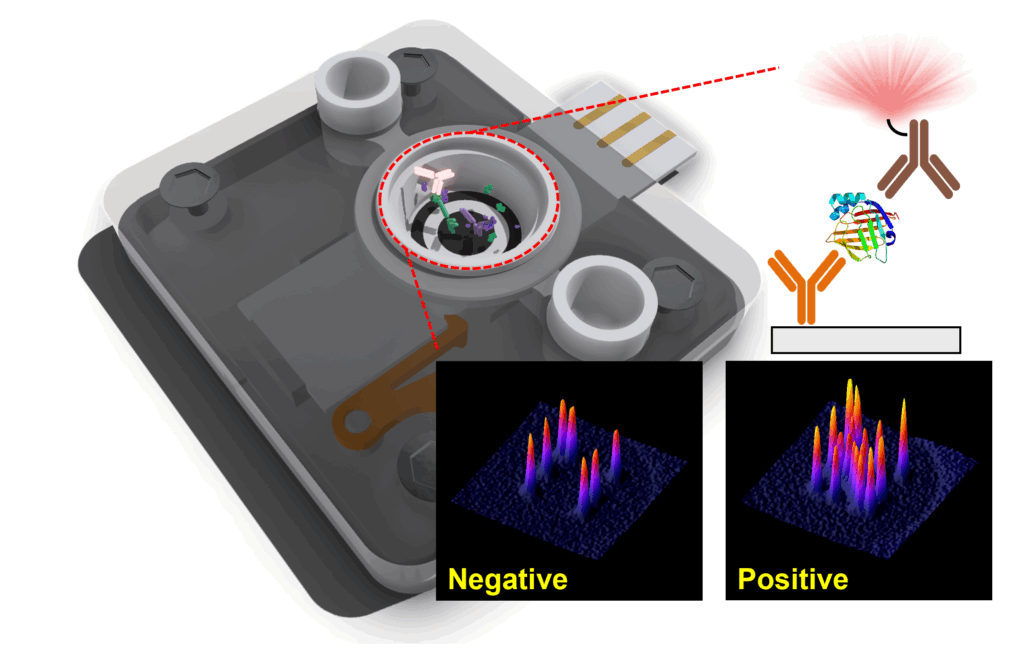
Novel detection strategy powered by a patented SR-ECLIA (spatially-resolved electro-chemiluminescence immunoassay).
Multi-biomarker detection on an electrode-based biosensor. Ultra-sensitive (low pg/mL range) for mTBI. Low-cost and scalable consumables production.
Near patients

Accurate, sensitive, and quantitative results for mTBI biomarker measurements at point-of-care.
A minimally invasive, field-deployable, compact, portable, and robust system.
Short time-to-results (< 15 min.) that may be transmitted to the hospital for improved primary diagnostics and care.
Check our scientific articles for details on our technology.
FROM THE TEAM
Scientific publications
RSC – Lab on a chip
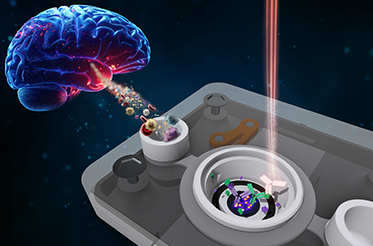
Engineering a diagnostic platform based on a spatially resolved electrochemiluminescence immunoassay for low-plex biomarker detection at point-of-care: mild traumatic brain injury and cardiac applications
Milica Jović, Denis Prim,
Gabriel Paciotti, Marc E. Pfeifer
12th July 2025
RSC – Sensors & Diagnostics
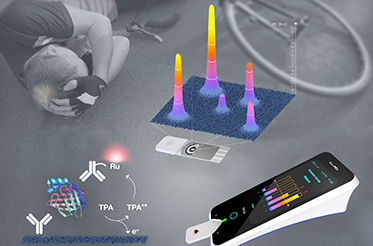
A novel point-of-care diagnostic prototype system for the simultaneous electrochemiluminescent sensing of multiple traumatic brain injury biomarkers
Milica Jović, Denis Prim, Ophélie Righini, David Tagan, Mélanie Stäuble, Marc Pignat, Steve Gallay, Martial Geiser and Marc E. Pfeifer
18th April 2023
MDPI – Biosensors
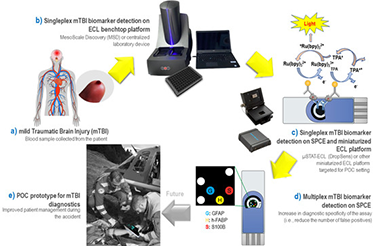
Towards a Point-of-Care (POC) Diagnostic Platform for the Multiplex Electrochemiluminescent (ECL) Sensing of Mild Traumatic Brain Injury (mTBI) Biomarkers
Milica Jović, Denis Prim,
Edis Saini and Marc Emil Pfeifer
14th February 2022
The project is protected by a patent application: Method and device for the detection of traumatic brain injuries (PCT/EP2023/051909).
MEET THE TEAM

Milica Jovic
Senior Scientist
PhD in Chemistry, Expert in Electrochemistry and Microfabrication Techniques. Lead Bioassay & Biosensor Developer. Former EPFL postdoc.
Entrepreneurial track record as Start-up Co-Founder and CTO.

Denis Prim
Senior Scientist
Bioanalytical Engineer. Analytical Chemist, Specialist in Applied Optics, System Integrator & Software Developer, Surface Chemistry Expert.
Entrepreneurial track record as Start-up Co-Founder and CEO.
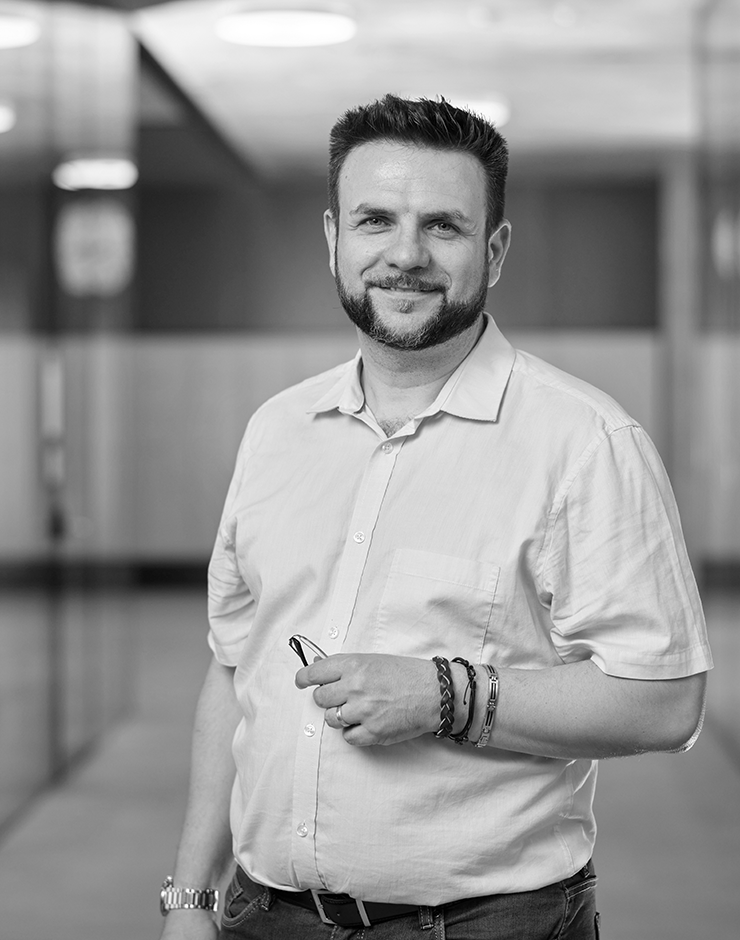
Gabriel Paciotti
Full Professor
Design & System Engineering Expert. Electromechanical Systems Design, Robotics & System Integration. Demonstrator Reader & Cartridge Development. Manufacturing & Industrial Process Technology Expert.

Marc E. Pfeifer
Full Professor
Analytical Chemist and Surface Chemistry Expert.
Former research leader and project manager in a large, international IVD corporation. Regulatory affairs, as well as start-up board of directors experience.
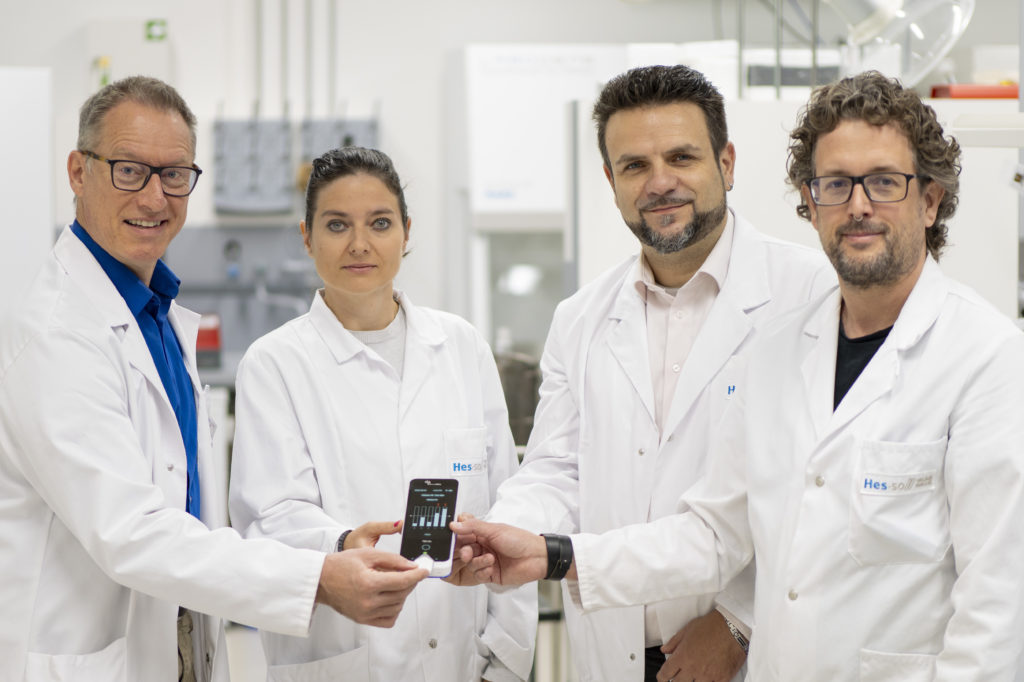

The NeuroMDx System has not been evaluated by the FDA or other regulatory agencies.


